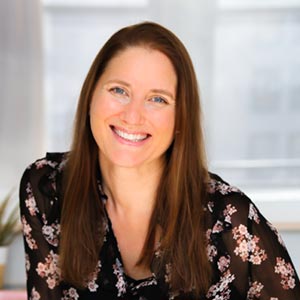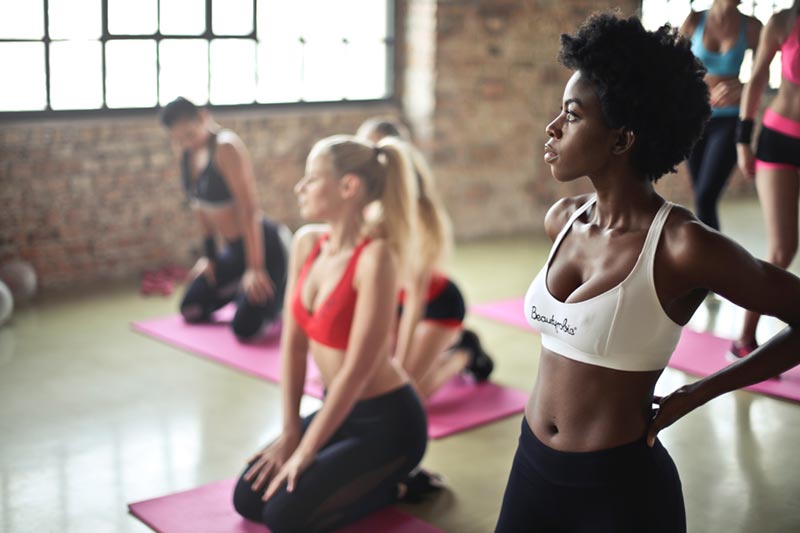Is wellness too exclusive? Wellness in the western world has been facing a backlash lately for what people are calling a lack of diversity and accessibility. So we’re asking (again) is wellness as inclusive as it could be? And, if not, how are we addressing what many see as a problem?
The world of wellness as too exclusive and “filled with overpriced products and services that unfortunately tend to exclude most people, whether racially or socioeconomically,” as Skift put it in April, 2019, has been getting some media attention lately.
In 2018, Self Magazine called wellness an industry with a “race problem” that “caters almost exclusively to white, wealthy people,” and an author on Essence.com lamented that, “We [women of color] remain underrepresented in the wellness space with few brands highlighting diversity, and even fewer speaking to us about our specific challenges.” Meanwhile, an author on Fashionista wrote about the “dark reality” of a wellness movement that relies on “narrow-minded, exclusionary practices,” adding that, “the marketing and branding many wellness companies rely on have become so eerily homogenous that it can, at times, be difficult to distinguish one brand from another. The same can often be said of their clientele.”
Of course, when we talk about spa and wellness, we’re also often talking about beauty and skincare. So, it’s probably no surprise that the Guardian recently asked “Why is the skin care industry still ignoring people of colour?” and stated that “Imagery still plays a huge role in equating whiteness with wellness, with spa websites dominated by young, thin, white women.” (This may not reflect the entire industry, depending on local majority populations.)
And in our final example (though this is by no means all that’s out there), in a 2016 article for The Establishment, titled “How The Wellness Movement Ostracizes Women Of Color,” British Lebanese author Salma Haidrani wrote simply, “Women of color like me aren’t just invisible in health and wellness. We’re not welcome. Women’s health, it appears, is assumed to be the sole preserve of white women.”
Is this the image that the spa and wellness industry wants to embody? Particularly in a global society where many are turning away from elitism and exclusivity and towards inclusivity and unpretentiousness (a quashing of the ego being one of the central tenets of true wellbeing)?
It’s something that Spa Executive touched on when we interviewed Patrick Huey of Montage for our April, 2019, cover spotlight.
Huey said in that interview:
“The impact of a lack of diversity is felt on the bottom line. The more inclusive we become as an industry, the more consumers will make what we do a necessary part of their lives. This creates longevity and expansive financial relevance for our industry. I also think beyond just dollars and profits, if we truly believe in the work that we do, why should we not want as many people as possible to reap the benefits of taking care of themselves?”
Continuing on this theme, we spoke with three industry insiders for some perspective. We asked, “Is wellness to exclusive?” and for their insight on why and how spa and wellness industry insiders are addressing the issues of diversity and accessibility in spa and wellness.
 Harriet Kilikita is an associate lifestyle editor at trend forecasting company WGSN. WGSN employs over 250 trend forecasters and data scientists globally to help businesses stay relevant and find growth opportunities. We reached out to Harriet Kilikita to ask if the people at WGSN were seeing a backlash against the exclusivity and inaccessibility of wellness. And what direction they predict the industry will move in the near future.
Harriet Kilikita is an associate lifestyle editor at trend forecasting company WGSN. WGSN employs over 250 trend forecasters and data scientists globally to help businesses stay relevant and find growth opportunities. We reached out to Harriet Kilikita to ask if the people at WGSN were seeing a backlash against the exclusivity and inaccessibility of wellness. And what direction they predict the industry will move in the near future.
“We are certainly starting to see a backlash against wellness as a privileged, exclusive industry with a movement towards a more inclusive, accessible feel. Consumers are starting to question why they should need to buy an expensive yoga mat or be part of an exclusive wellness club to improve their wellbeing, when many of the practices can be done for free and are just as effective.
“Consumers also want to be able to see people they can relate to in the wellness industry, and be part of a community rather than feeling alienated by unachievable levels of perfection.
“Fashion, fitness and beauty are all moving towards being more diverse and more inclusive, and we are starting to see wellness take this direction as well. Wellness is becoming more community-minded, with the emergence of new groups that encourage people to come together in inclusive spaces.
“For example, inspirational women of colour are running events to open up yoga and meditation: events by Houston-based duo 2Dope Yogis and yoga teacher TrapYogaBae mix yoga with trap music for a party atmosphere where everyone can get involved. Consumers are also doing their own wellness practices in the home for a cheaper and more relaxed approach to wellbeing, whether that’s spa-inspired sheet face masks, fitness tutorials from YouTube or using a meditation app each morning.
“The wellness industry needs to be aware that everyone wants to see themselves reflected in wellness, and that an inclusive attitude will be key. To feel authentic, this will need to go beyond tokenism to be a truly open approach that represents and caters to a wide range of consumers across branding, spaces and communications. At-home wellness kits, fitness equipment and free apps will also continue to be key as consumers look for a more accessible way to bring a sense of wellbeing into the comfort of their own homes.”
 Shari Auth, is a leading holistic health practitioner in New York, and an acupuncturist and board certified herbalist. She is the founder of WTHN, a healing centre offering acupuncture and other Traditional Chinese Medicine treatments. The goal of WTHN is to empower the consumer to make the right choices for their health through educating and using accessible language. And to make these treatments accessible to everyone. We asked Shari Auth about why and how she is making wellness more inclusive.
Shari Auth, is a leading holistic health practitioner in New York, and an acupuncturist and board certified herbalist. She is the founder of WTHN, a healing centre offering acupuncture and other Traditional Chinese Medicine treatments. The goal of WTHN is to empower the consumer to make the right choices for their health through educating and using accessible language. And to make these treatments accessible to everyone. We asked Shari Auth about why and how she is making wellness more inclusive.
“In several ways, the wellness industry has become too exclusive. Many wellness services and products are expensive and not widely known to the average person.
“Unfortunately, the wellness industry has a history of being inaccessible due to price point, so that the majority of its consumers are a niche, wealthy population that can afford to spend high prices for products and services that are truly beneficial for all people. Wellness has also been viewed as an accessory to one’s life, rather than an integral part of it, and it seems as though many companies have capitalized on creating brands targeted toward this demographic rather than making wellness affordable and accessible to all and helping to reposition wellness as a necessary good for everyone.
“As our country faces more and more health crises, it’s important to position “wellness,” in its many forms, as a valuable tool for preventative healthcare and as a respectable healing modality. The more we encourage people to take up wellness practices, the more our society will be well. When we exclude certain groups or demographics, or make wellness a commodity, we are excluding everyone from benefitting from the amazing powers that wellness has to offer, whether it be to decrease anxiety or to heal disease.
“WTHN’s philosophy is to democratize natural healing and wellness by providing effective, easy to understand acupuncture treatments and all organic herbal medicine at an affordable price point . We also make things convenient, which is a huge factor when considering accessibility. WTHN also has created an affordable membership model and herbal medicine subscription model, which is unique in the natural healing space. This affordability and convenience encourages clients to be able to incorporate consistency into their wellness routines.”
 Micah Jackson is the founder of Esqapes, a Virtual Reality massage center set to open in Los Angeles. The goal of Esqapes is to provide guests with a unique way to relax and take a break from the routines, responsibilities and daily issues that can cause anxiety and stress. And one of the founding principles is to maintain a diverse staff at every location and at all times. No Esqapes location will be run by people of a single gender or a singular race. We asked Jackson to about why this is important and the larger issues he is trying address.
Micah Jackson is the founder of Esqapes, a Virtual Reality massage center set to open in Los Angeles. The goal of Esqapes is to provide guests with a unique way to relax and take a break from the routines, responsibilities and daily issues that can cause anxiety and stress. And one of the founding principles is to maintain a diverse staff at every location and at all times. No Esqapes location will be run by people of a single gender or a singular race. We asked Jackson to about why this is important and the larger issues he is trying address.
“In many regards I agree that spas traditionally are perceived as either being a bit posh and not accessible for people who can’t afford $150 or more, or conversely, there is a negative perception related to small, independent spas. Some people view the massage business in the local strip mall as a not so trustworthy establishment. Many people don’t feel comfortable visiting those smaller spas for a variety of reasons, but this comes down to perception and whether or not they will feel comfortable inside.
“There’s a whole other issue in the black community around not feeling comfortable at a spa because you typically need to remove your clothes and it involves sharing intimate spaces (sauna, hot tub, etc.) with strangers who are most likely white. This is a big deterrent for many African Americans who may have never been to a spa and won’t consider going because of the social hurdle associated with it.
“Like many aspects of our society, diversity is an important factor when trying to make people feel welcome and comfortable. This is especially crucial for businesses that provide wellness services. If a business category has a perceived ‘this isn’t for me’ stigma, it will likely limit the potential customer base.
“My goal with Esqapes is to offer relaxation to all, but more importantly remove as many barriers to entry as possible. We truly want all points of view to grow the business and for all guests to feel welcome.”




